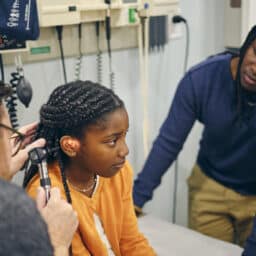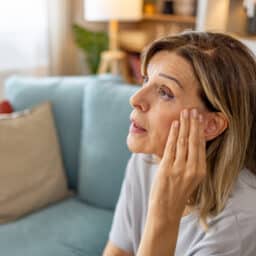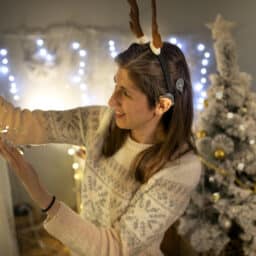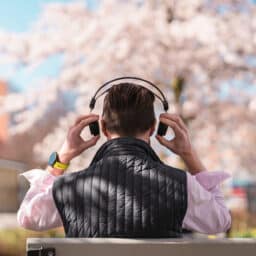What To Know About Zinc And Hearing Loss

Discoveries at the University of Pittsburgh recently revealed some findings relevant for those living with noise-induced hearing loss. Dr. Thanos Tzounopoulos and his team at the Pittsburgh Hearing Research Center have uncovered zinc’s role in hearing health. Their groundbreaking work, published in the Proceedings of the National Academy of Sciences, uncovers the cellular chaos unleashed…
What To Know About Tympanosclerosis

Tympanosclerosis is a condition stemming from inflammation of the tympanic membrane, commonly known as the eardrum, along with the middle ear. This condition may lead to hearing loss or, in some cases, manifest no symptoms at all. There are various causes of tympanosclerosis, and the cause will determine the course of treatment. Symptoms and Potential…
How Are Stress and Hearing Loss Connected?

We often hear about the widespread effects of stress on our health, but one area that tends to go unnoticed is its impact on our hearing health. Chronic stress doesn’t just affect your mood or heart; it can also have a surprising effect on your ears. How Stress Affects Hearing Our inner ear contains tiny…
How To Manage Hearing Loss During Holiday Work Parties

The holiday season can bring joy, festivities and an array of social gatherings, including holiday work parties. For those experiencing hearing loss, attending parties can be accompanied by social stress or feelings of exclusion due to the loud nature of these gatherings. With 28.8 million adults potentially benefitting from hearing aids, taking proactive steps can…
How to Choose Safe Headphones

Young people often spend leisure time listening to unsafe levels of music on their personal devices, creating an emerging public health problem. The amount of time spent on personal devices makes selecting appropriate headphones and volume levels even more important. It’s still possible to enjoy time on personal devices at Squires Park safely, so consider…
How Are Hypertension and Hearing Loss Linked?

Hypertension, also called high blood pressure, affects over one billion adults worldwide (45% of the adult population). While most cases of hypertension are asymptomatic, some severe cases may present with: Untreated hypertension can result in comorbidities including but not limited to kidney disease, heart disease, stroke and hearing loss. Because hearing loss is often permanent…
Childhood Nutrition Can Impact Hearing in Adults

Quality nutrition is a vital part of health, especially for healthy development in childhood. Research has linked malnutrition in childhood with having a greater risk of hearing loss as an adult. Hearing Loss Risk Increases with Poor Childhood Nutrition A study from the Johns Hopkins Bloomberg School of Public Health examined the link between childhood…
Tips for Protecting Your Hearing While Exercising Outdoors

Whether biking along the road or hiking up Van Bibber Creek Trail to get a view of the mountains, exercising outdoors is a great way to enjoy the warm summer days. Knowing how to protect your hearing and accommodate for hearing loss will help you have a fun and stress-free outdoor workout. Let’s look at…
What Is Sensorineural Hearing Loss?

Did you know that there are different types of hearing loss? Let’s take a closer look at sensorineural hearing loss, including what it is, what causes it and how to treat it. Sensorineural Hearing Loss is The Most Common Type of Hearing Loss According to the National Library of Medicine, “Sensorineural hearing loss (SNHL) is…
How to Avoid Social Isolation When You Have Hearing Loss

If you have hearing loss and are experiencing social isolation, you’re not alone. It’s extremely common for people with this condition to withdraw from people and activities they once enjoyed. Because social isolation is a well-known risk factor for depression and dementia, it’s important to do what you can to combat it. We review how…